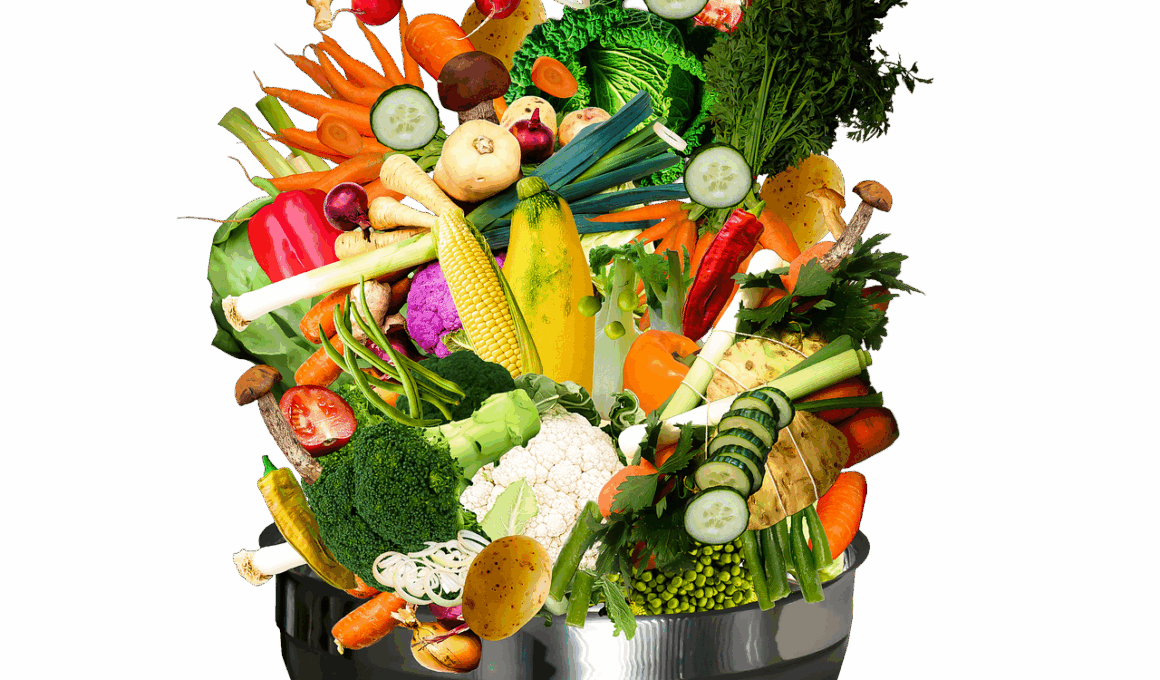Exploring Cultural Influences on Vegan and Vegetarian Eating
Vegan and vegetarian diets have gained significant popularity for various reasons, amongst which cultural influences play a pivotal role. Different cultures maintain unique dietary practices that reflect their history, geography, and beliefs. For example, in many Asian cultures, vegetarianism is tied to spiritual beliefs such as Buddhism and Jainism, where many followers adhere to strict plant-based diets. This adherence has fostered a rich culinary heritage that features an array of inventive vegetarian dishes. Additionally, Mediterranean diets frequently include vegetarian options, influenced by the agriculture-centric practices of local populations. Eating plant-based foods is a staple across various regions and is symbolically linked to harmony with nature. Cultural festivals often celebrate vegetarian dishes, accentuating their importance. Furthermore, in regions where meat is a luxury, people traditionally have relied on plant-based sources for sustenance. The global surge of vegan businesses reflects shifting cultural norms towards health and sustainability. Moreover, cultural events often highlight specific vegan foods, showcasing the vast palate of plant-based eating. Therefore, examining cultural influences elucidates the reasons behind the growth of vegan and vegetarian diets today.
The rise of vegan and vegetarian diets is not merely a trend; it is driven by a profound exploration of identity, sustainability, and ethical considerations. For many, choosing plant-based foods stems from concerns about animal welfare and the environmental impact of meat production. An increasing amount of research underscores the link between livestock farming and greenhouse gas emissions. Cultures around the world are grappling with these aspects, leading to a reevaluation of traditional eating habits. The focus on health also contributes significantly, as plant-based diets are associated with numerous health benefits, including lower risks of chronic diseases. People often encounter various food cultures that inform their preferences, prompting them to experiment with meat-free alternatives that align with their growing awareness of health. Furthermore, globalization means that cultural food influences and vegan innovations have become widely accessible. Online platforms allow for the sharing of recipes and ideas from diverse forms of cultural cuisine, making veganism more appealing. Engaging with veganism also challenges societal norms, creating a space where ethical eating is celebrated rather than stigmatized.
Many cultures have historically utilized plant-based foods as staples. In Ethiopia, the traditional diet includes a variety of lentils, vegetables, and spices, making it naturally suitable for vegetarians. The dishes are often prepared during significant religious occasions, emphasizing their importance in communal celebrations. Similarly, Indian cuisine showcases a plethora of vegetarian options that are integral to day-to-day dining. Dishes rooted in cultural practices emphasize nutritional value and flavor without the need for meat. These culinary traditions have long catered to families looking to uphold cultural identities through food. By recognizing how culturally embedded food practices influence dietary choices, one can appreciate the aesthetics and flavors of vegan and vegetarian diets. Different spices and preparation techniques enhance the eating experience, highlighting how cultures adapt their culinary preferences. The values attached to food often resonate with personal beliefs, leading to ethical choices regarding one’s diet. Thus, cultural history continues to shape the understanding of plant-based eating in modern society, enriching the experiences of those who participate in them.
Cultural Festivals and Plant-Based Foods
Cultural festivals serve as vital platforms that reinforce traditional dietary practices, often illuminating the significance of vegan and vegetarian dishes. During these celebrations, the emphasis on plant-based options can promote awareness and appreciation for local culinary heritage. Events dedicated to showcasing beloved dishes, familiar ingredients, and cooking methods often attract a diverse audience, offering them new experiences with vegetarian cuisine. At numerous food festivals around the globe, vendors provide regional plant-based foods that emphasize sustainability and promote healthy eating habits. Cultural celebrations such as Diwali in India or Ramadan in the Middle East often feature vegetarian dishes that are important for communal gatherings. By intertwining cultural heritage with vegetarian cuisine, these events offer insight into the interconnectedness of community values and dietary choices. It encourages individuals to explore foods beyond labeling them as simply vegan or vegetarian; they become a narrative of cultural expression. Such initiatives highlight how food serves as a medium for cultural storytelling, connecting generations with their roots while recognizing the potential for plant-based diets to foster communal ties.
In Western cultures, the growing interest in veganism often intersects with environmental movements, showcasing a shift towards organic and sustainable farming practices. This shift is often detailed in local farmers’ markets, where people find not just fresh produce but a variety of plant-based products. As people become more educated about the food system, a growing number are opting to support local initiatives that promote environmentally friendly practices. Communities are increasingly emphasizing the importance of supporting small enterprises producing plant-based products. Furthermore, books and documentaries focusing on plant-based diets have gained traction in popular media, reinforcing the narrative that veganism is not only a culinary choice but also a lifestyle. This has encouraged a broader embrace of veganism among those who may not traditionally belong to food cultures associated with plant-based eating. The dialogues surrounding health, environment, and ethics have made veganism appealing to a wide spectrum of individuals. Thus, this cultural shift reflects the growing recognition of how individual choices can influence larger ecological outcomes more meaningfully.
Educational Initiatives and Food Culture
Educational initiatives that highlight the importance of plant-based diets further cultivate cultural exchanges around nutrition. Schools and community programs increasingly introduce children and young adults to vegan cooking and healthy eating principles. This proactive approach enables participants to understand the environmental and ethical considerations surrounding their food choices. Incorporating plant-based curricula emphasizes cultural diversity as it allows various global food traditions to be explored. Such initiatives empower students to appreciate their cultural heritage while fostering plant-based explorations. As they experiment with diverse recipes, they also learn about food preparation techniques from cultures worldwide. The educational aspect highlights how food culture can be interchangeable and adaptable, promoting creativity while preserving traditional flavors. Additionally, workshops and cooking classes facilitate the exchange of experiences within communities, allowing for culinary collaboration. Such interactive environments encourage individuals to explore and respect plant-based diversity across cultures. Therefore, through education, the moral aspects of dietary choices are reinforced, enabling a new generation to engage with food culture innovatively and sustainably.
Exploring cultural influences on vegan and vegetarian diets portrays a complex interplay of history, identity, and ethics that shapes modern eating habits. The journey towards embracing plant-based foods is often informed by one’s environment, heritage, and community practices. Through culinary innovation, cultural festivals, and educational initiatives, societies are increasingly recognizing the value of incorporating more plant-based dishes into their diets. This transition is crucial for fostering a more sustainable food system that prioritizes the well-being of individuals and the planet. As more people navigate their journey with food, acknowledging and celebrating diverse culinary traditions will be essential. By doing so, individuals cultivate a deeper appreciation for the cultural heritage behind their meals, leading them to make informed choices about their diets. Ultimately, conscious eating provides an avenue through which people can express their beliefs and values. The exploration of vegan and vegetarian diets through cultural influences connects individuals to something profound and significant — their roots, their community, and the future they envision, where food serves as a bridge between cultures and a means of sustenance.
In conclusion, understanding cultural influences reveals the deeper connections individuals have with their food choices, particularly in the realm of veganism. As people navigate their personal diets, the cultural context often shapes views towards plant-based diets. This exploration offers valuable insights and encourages embracing diversity in food practices across the globe. By celebrating these influences and their teachings, one can foster a culture of empathy and understanding, elevating the respect for both food and its origins. Via shared culinary experiences and the stories that accompany these dishes, cultural understanding is enhanced. Individuals who embrace veganism or vegetarianism can access a wider array of flavors and experiences. They find connection and purpose in their diets, merging personal and communal values. Furthermore, as the discussion surrounding nutrition and ethics surrounding plant-based eating continues to evolve, the importance of cultural influences remains salient. It highlights how traditional practices can inform contemporary practices, paving the way for a future where a diverse array of foods brings people together. Thus, ultimately, cultural influences lead us to a better comprehension of vegan and vegetarian diets, unveiling the richness they offer in our culinary journey.


